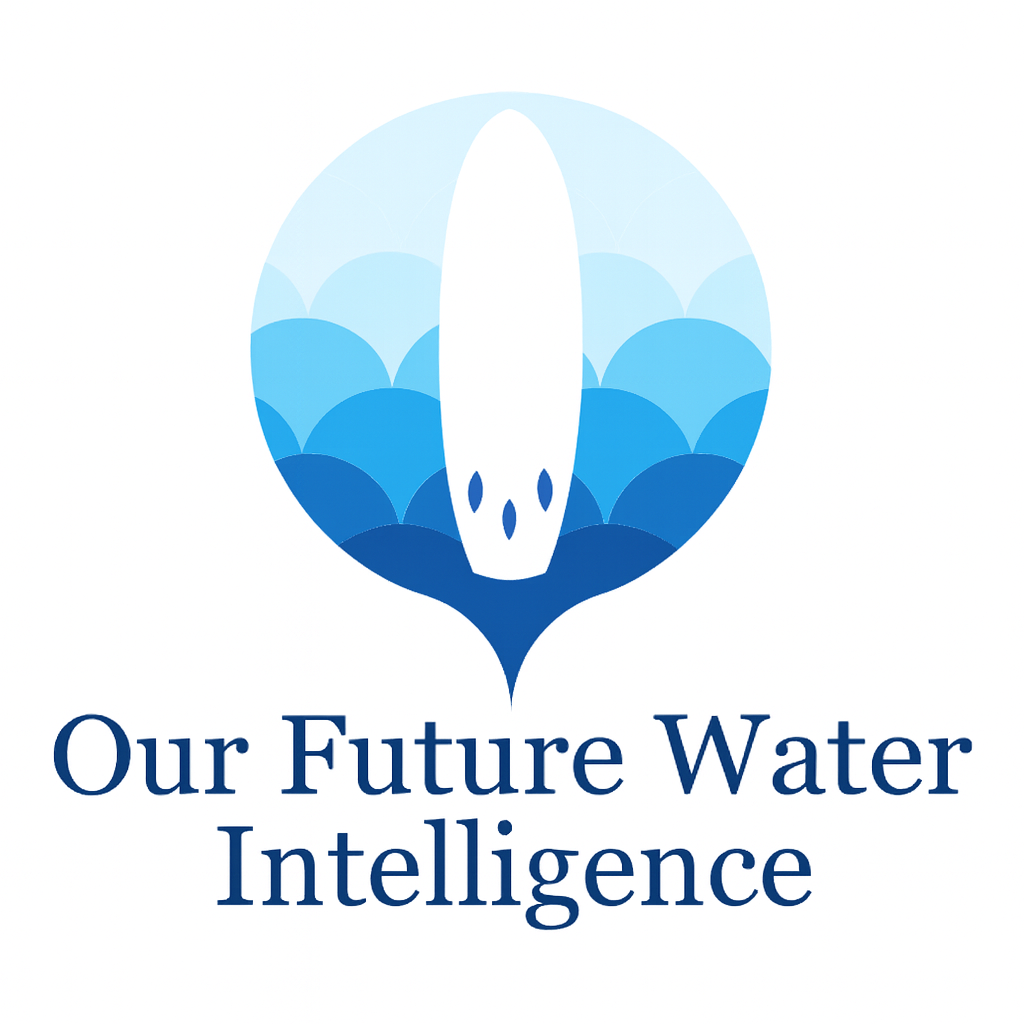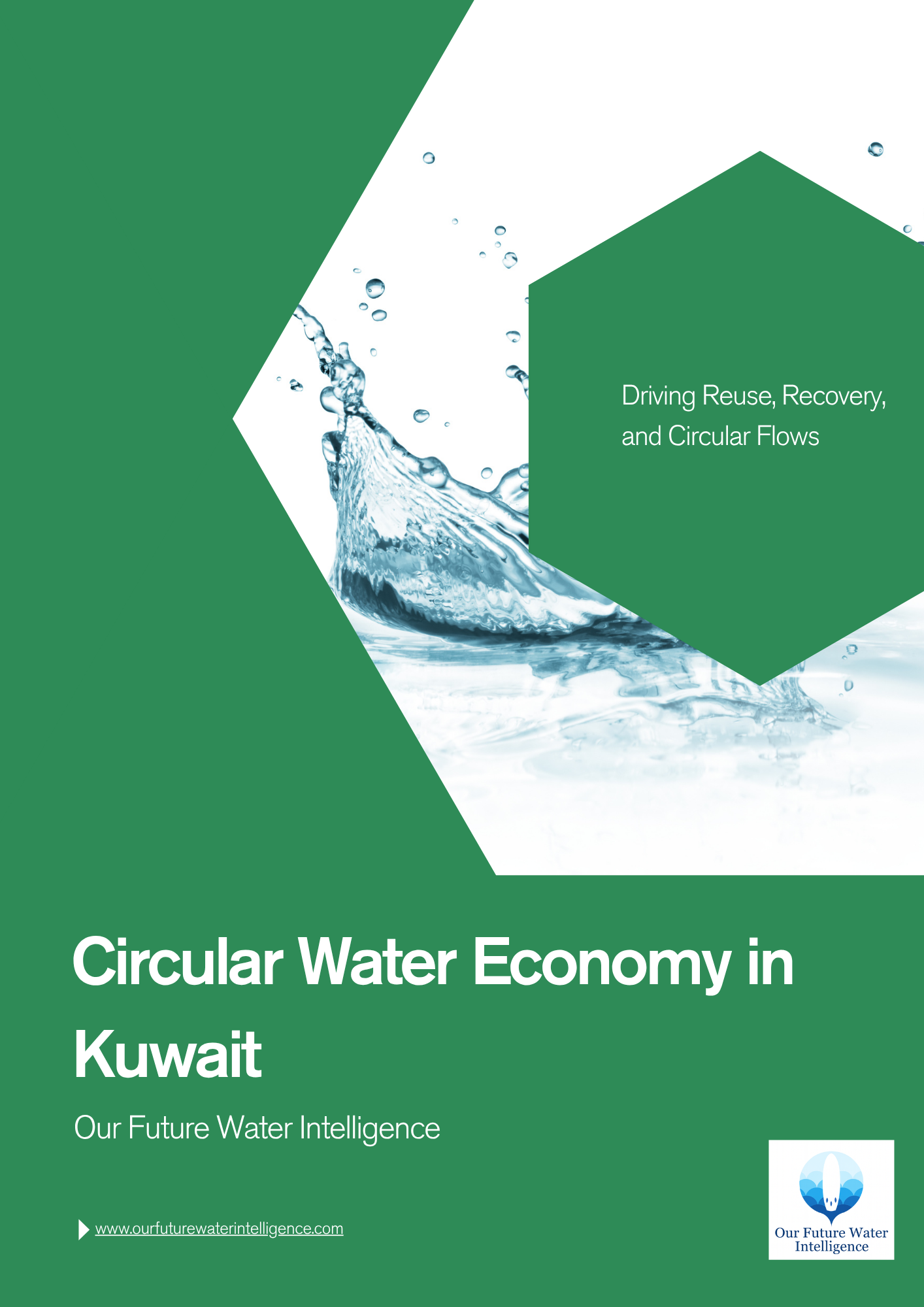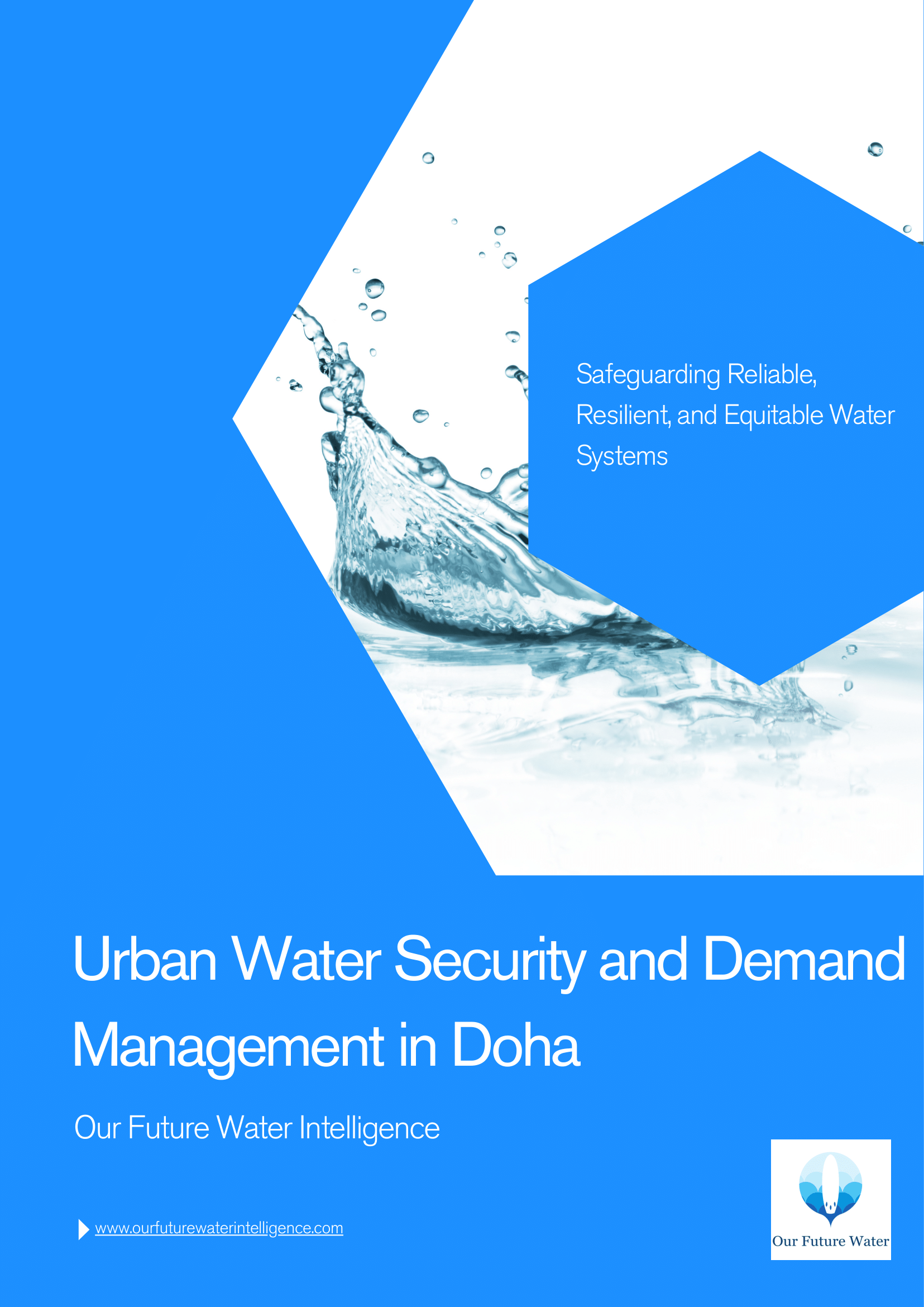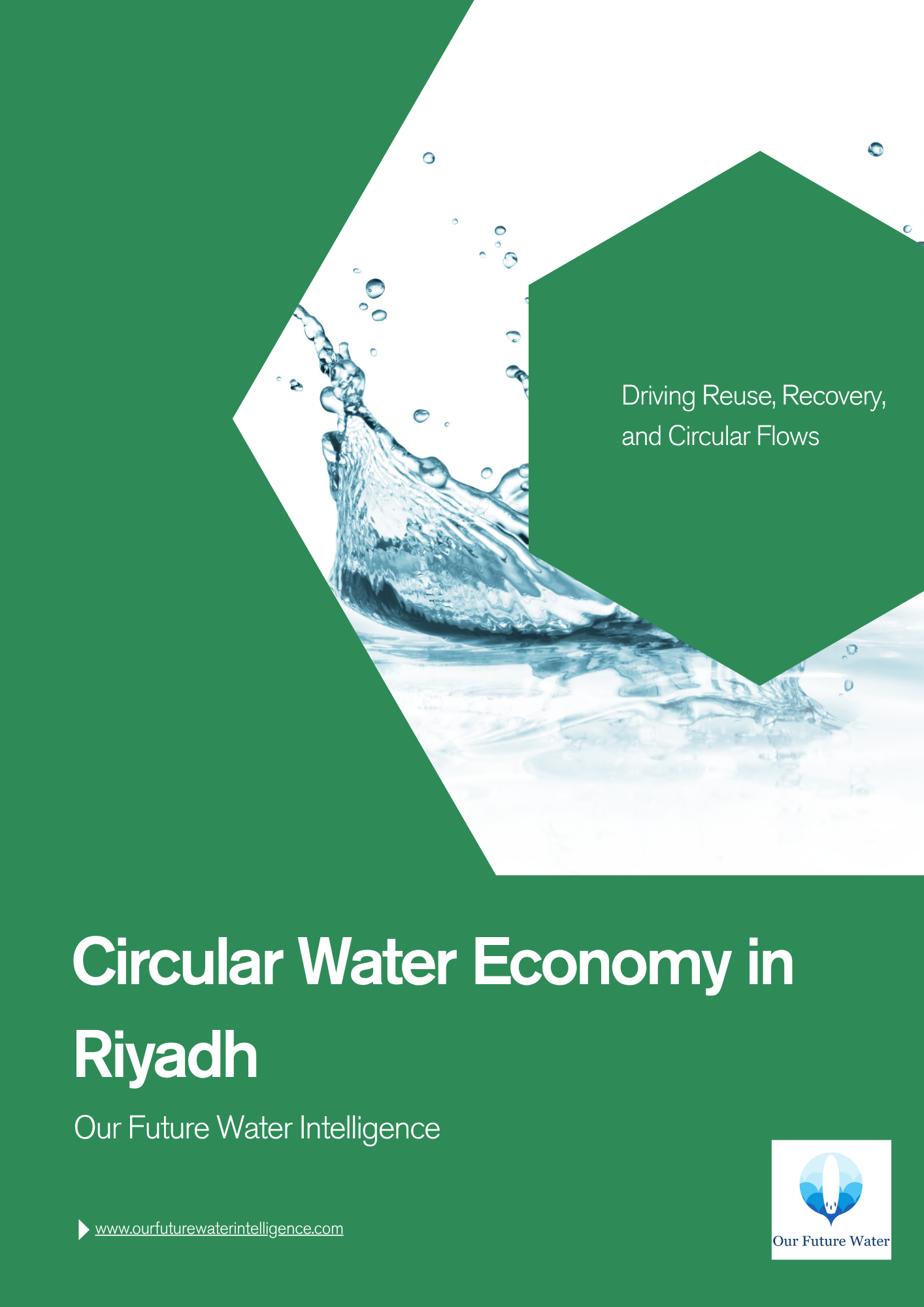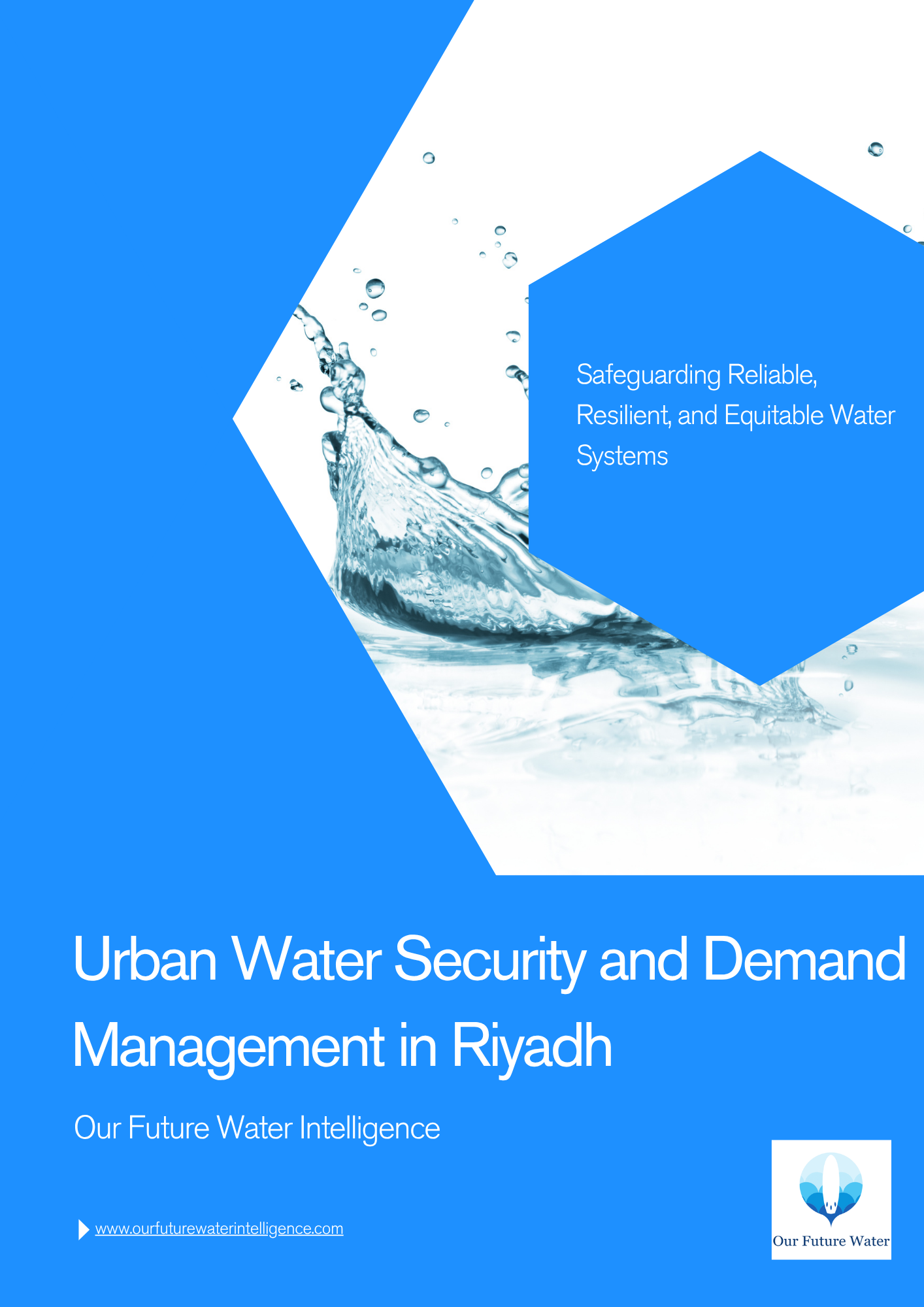
Urban Water Security in Riyadh: Demand, Reuse & Governance
Our Future Water Intelligence has released its latest publication, Urban Water Security and Demand Management in Riyadh, authored by Robert C. Brears, Founder of Our Future Water Intelligence and an internationally recognized expert on water security, urban resilience, and sustainability governance.
Published at a pivotal time for Saudi Arabia’s water sector, the report delivers a data-driven analysis of desalination dependency, wastewater reuse, non-revenue water reduction, tariff reform, and digital modernization under Saudi Vision 2030 and the National Water Strategy (NWS) 2030. It provides actionable insights for policymakers, utilities, and investors seeking to strengthen urban water security and achieve long-term sustainability across the Kingdom.
KEY FINDINGS
- Desalination Dependency: Riyadh relies heavily on desalinated seawater, providing approximately three-quarters of municipal supply and accounting for 62% of total distributed water in 2023. Desalination consumes around 9% of national electricity, contributing to high operational costs and emissions.
- Groundwater Depletion: Non-renewable groundwater extraction far exceeds recharge, placing pressure on finite reserves and emphasizing the need for alternative sources.
- Wastewater Reuse Expansion: Treated wastewater reuse rose by 12% in 2023 to 555 million m³. Expansion of facilities such as the Riyadh South Wastewater Treatment Plant (400,000 m³/day) supports the target of 70% reuse by 2030.
- Non-Revenue Water (NRW): NRW is estimated at 35% nationally, largely from leaks and unauthorized use. Smart-metering and SCADA integration aim to reduce NRW to 15% by 2030.
- Tariff and Governance Reform: Industrial tariffs have increased to SAR 9/m³, reducing fiscal burdens and incentivizing efficiency, while residential affordability is maintained.
- Digital Transformation: Over two million electronic meters and the Kashf leak-detection app (used by 13,000 customers) have saved over 8 million m³ of water.
- Circular Water Economy: The Green Riyadh initiative utilizes treated water to irrigate 7.5 million trees, advancing urban sustainability.
- Climate Risks: Extreme temperatures, frequent droughts, and limited rainfall (<100 mm annually) threaten supply reliability.
- Strategic Vision: Riyadh integrates innovation, policy reform, and behavioral change to ensure water resilience and fiscal sustainability under Vision 2030.
EXPERT INSIGHT
“Riyadh demonstrates that even in one of the driest regions on Earth, effective governance, technology, and community engagement can deliver measurable progress toward water sustainability,” said Robert C. Brears, Founder of Our Future Water Intelligence. “This report provides decision-makers, investors, and practitioners with actionable intelligence to modernize systems, improve efficiency, and enhance resilience.”
WHAT’S INSIDE THE REPORT
- Detailed overview of Riyadh’s water supply system, consumption patterns, and reuse progress
- Assessment of desalination efficiency, tariff reforms, and institutional restructuring under Vision 2030
- Analysis of regulatory and technological instruments supporting demand management
- Insights on digitalization, SCADA networks, smart metering, and circular water reuse
- Priority actions: NRW reduction, tariff reform, efficiency retrofits, and renewable-powered desalination
WHY THIS REPORT MATTERS
Riyadh faces one of the most pressing urban water challenges in the world—combining rapid population growth, rising temperatures, and near-total dependence on energy-intensive desalination. Yet, through targeted policy reforms, digital modernization, and circular economy principles, the city is redefining what sustainable water management looks like in arid environments.
This report equips policymakers, utilities, and investors with authoritative insights to navigate Saudi Arabia’s evolving water landscape, strengthen governance, and ensure water security for decades ahead.
